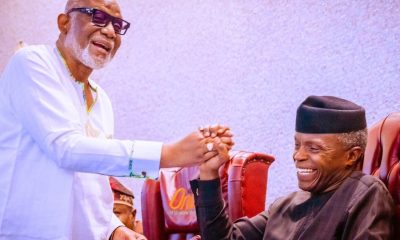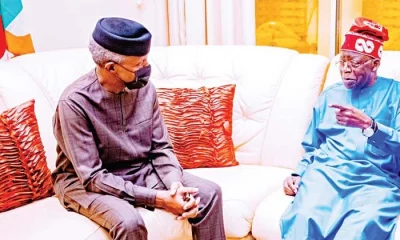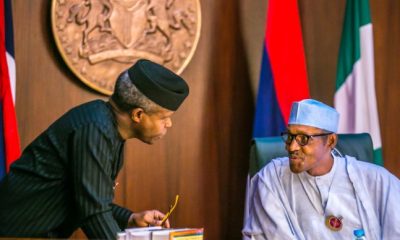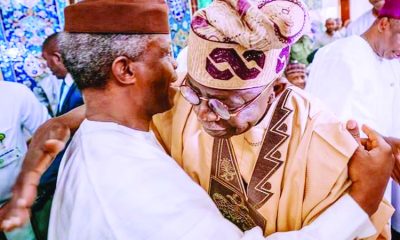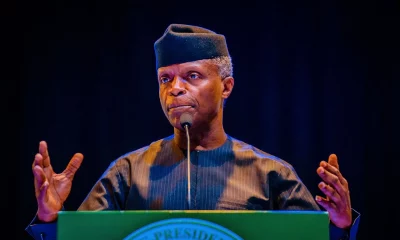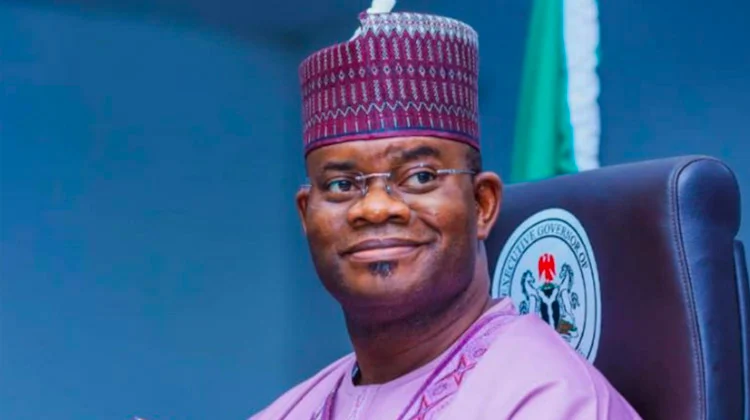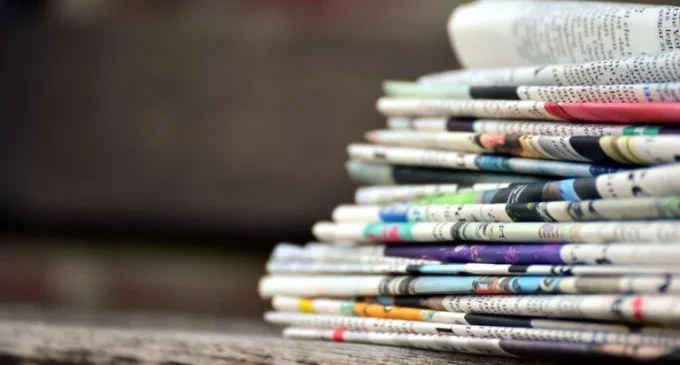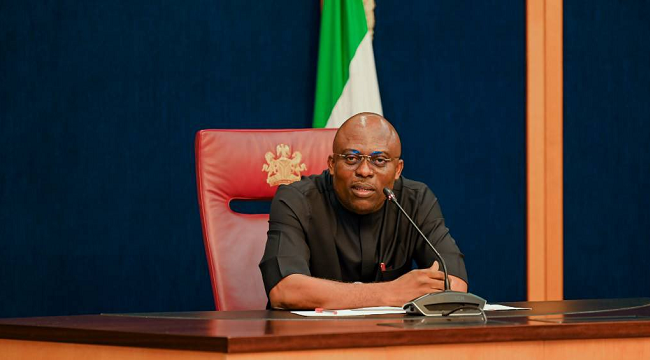Vice President Yemi Osinbajo has proposed a Debt-For-Climate (DFC) swap deal to allow African countries help advance the course of global net-zero emissions targets and facilitate energy access.
According to a statement signed by the Vice President’s spokesperson, Laolu Akande, Osinbajo made the proposal during a lecture on a just and equitable energy transition for Africa at the Center for Global Development in Washington D.C, Prof Osinbajo.
He stated that “debt for climate swaps is a type of debt swap where bilateral or multilateral debt is forgiven by creditors in exchange for a commitment by the debtor to use the outstanding debt service payments for national climate action programs.
“Typically, the creditor country or institution agrees to forgive part of a debt, if the debtor country would pay the avoided debt service payment in a local currency into an escrow or any other transparent fund and the funds must then be used for agreed climate projects in the debtor country.”
Justifying the rationale behind such a debt swap deal, the Vice President submitted that the commitment to it would “increase the fiscal space for climate-related investments and reduce the debt burden for participating developing countries.
“For the creditor the swap can be made to count as a component of their Nationally Determined Contributions (NDC).”
He added that to make this efficient “there are of course significant policy actions necessary to make this acceptable and sustainable.”
Global carbon market
The Vice President also proposed the greater participation of African countries in the Global Carbon Market while exploring financing options for energy transition.
According to him, there is a need to take a comprehensive approach in working jointly towards common goals, including the market and environmental opportunities presented by the financing of clean energy assets in growing energy markets.
“in addition to conventional capital flows both from public and private sources, it is also essential that Africa can participate more fully in the global carbon finance market,” he said.
“Currently, direct carbon pricing systems through carbon taxes have largely been concentrated in high and middle-income countries. However, carbon markets can play a significant role in catalyzing sustainable energy deployment by directing private capital into climate action, improving global energy security, providing diversified incentive structures, especially in developing countries, and providing an impetus for clean energy markets when the price economics looks less compelling – as is the case today.”
He encouraged developed countries to support “Africa to develop into a global supplier of carbon credits, ranging from bio-diversity to energy-based credits,” which would be a leap forward in aligning carbon pricing and related policy around achieving a just transition.
While also addressing the concerns of the African continent and other developing countries regarding a just transition, Prof Osinbajo noted that “the central thinking for most developing countries is that we are confronted on this issue of a just transition with two, not one, existential crises; the climate crisis and extreme poverty.
“The clear implication of this reality is that our plans and commitments to carbon neutrality must include clear plans on energy access if we are to confront poverty. This includes access to energy for consumptive and productive use and spanning across electricity, heating, cooking, and other end-use sectors.”
According to him, “nearly 90 million people in Asia and Africa who had previously gained access to electricity can no longer afford to pay for their basic energy needs. The inflationary pressures caused by the COVID-19 pandemic and other macroeconomic trends have been further exacerbated by the ongoing war in Ukraine.
“Countries worldwide have been hit by record prices on all forms of energy. Power prices are breaking records across the globe, especially in countries or markets where natural gas plays a key role in the energy mix.”
Osinbajo sounded a note of caution, saying that “in such a global reality, limiting financing of gas projects for domestic use would pose a severe challenge to the pace of economic development, delivery of electricity access and clean cooking solutions, and the scale-up and integration of renewable energy into the energy mix.”
Speaking on Nigeria’s initiative to combat the unfolding crisis, the VP revealed that the country’s Energy Transition Plan “was designed to tackle the dual crises of energy poverty and climate change and deliver SDG-7 by 2030 and net-zero by 2060 while centring on the provision of energy for development, industrialization, and economic growth.
“We anchored the plan on key objectives including lifting 100 million people out of poverty in a decade, driving economic growth, bringing modern energy services to the full population and managing the expected long-term job losses in the oil sector due to global decarbonization.”
He also emphasized the role that natural gas “must play in the short-medium term to facilitate the establishment of baseload energy capacity and address the nation’s clean cooking deficit in the form of LPG.”
The Vice President identified some double standards evident in the response to the current energy crisis by many countries in the global North.
According to him, “today excluding South Africa, the remaining one billion people in Sub-Saharan Africa are serviced by an installed capacity of just 81 gigawatts. Sub-Saharan Africa has contributed, based on information that is already out there, less than one percent of cumulative CO.2 2 emissions.
“By comparison, the United States has an installed capacity of 1,200 gigawatts to power a population of 331 million people, while the United Kingdom has 76 gigawatts of installed capacity for its 67 million people. The per capita energy capacity in the United Kingdom is almost fifteen times than in Sub-Saharan Africa.”
He added that “many of these countries had barely a year ago seriously advocated or implemented policies on limiting public funding for fossil fuel projects in developing countries, making no distinction between upstream oil and coal exploration; and gas power plants for grid balancing.
“But today in the wake of the energy crisis, many European nations have made recent announcements to increase or extend their use of coal-fired power generation through 2023, and potentially beyond. This is in violation of their climate commitments and analysis suggests that this will raise power sector emissions of the EU by 4%, a significant amount given the high base denominator of EU emissions.”
Osinbajo then observed that “Europe’s energy crisis has not been ignored, it continues to be met with support, and international resources. In stark contrast, the developing world is still being held to account for its emission reduction without adequate support and investment for its energy transitions.
Acknowledging the contrast to the wider responses to the climate crisis on the African continent, the Vice President said, “we are not seeing careful consideration and acknowledgement of Africa’s aspirations. For instance, despite the tremendous energy gaps, global policies are increasingly constraining Africa’s energy technology choices.”
Nevertheless, the Vice President confirmed that “with the Kigali communique and several other formal and informal consultations, African nations are now happily more intentional in taking joint ownership of our transition pathways and designing climate-sensitive strategies that address our growth objectives. This is what Nigeria has done with our Energy Transition Plan.
“Our Energy Transition Plan finds that an additional $10 billion over business as usual is required annually till 2060 to shift the entire economy to a net-zero pathway.”
On the subject of energy investments, he identified the mismatch in the volume of investments experienced in developed countries as opposed to developing countries.
According to him, “while representing just 15% of the world’s population, high-income countries received 40% of global energy investment in 2018. Conversely, developing countries with 40% of the world’s population received just 15% of global energy investment. This hasn’t improved much in recent years.”
Addressing what the ultimate goal of the global energy transition should be, Osinbajo stated that it is in achieving “reliable net-zero carbon energy systems to power prosperous, inclusive economies.”
Speaking on the Nigerian context, he added that it means “building sustainability into our economic planning, which we had developed in an Economic Sustainability Plan in the aftermath of the COVID-19 pandemic.
This includes an ambitious plan over the near term to provide 5 million homes and SMEs with cleaner energy through its decentralized solar power program.”
After he delivered remarks at the American think-tank, the Vice President then took questions around the theme of a just energy transition and the recently launched Nigerian Energy Transition Plan.
Members of the Energy Transition Implementation Working Group (ETWG) present at the lecture included the Minister of Works & Housing, Babatunde Raji Fashola; Minister of Finance, Budget and National Planning, Dr. (Mrs) Zainab Ahmed; Minister of Environment, Mohammed Abdullahi; Director-General and CEO of the National Council on Climate Change, Salisu Dahiru; Nigeria’s Ambassador to the United States of America, Dr. Uzoma Emenike, Special Representative of the UN Secretary-General for Sustainable Energy for All (SEforALL), Ms Damilola Ogunbiyi; Managing Director of Niger Delta Power Holding Company Limited, Chiedu Ugbo; and other senior government officials.


 News3 years ago
News3 years ago
 Entertainment2 years ago
Entertainment2 years ago
 News3 years ago
News3 years ago
 Privacy3 years ago
Privacy3 years ago
 Sports2 years ago
Sports2 years ago
 Entertainment2 years ago
Entertainment2 years ago
 News3 years ago
News3 years ago
 Opinion3 years ago
Opinion3 years ago
